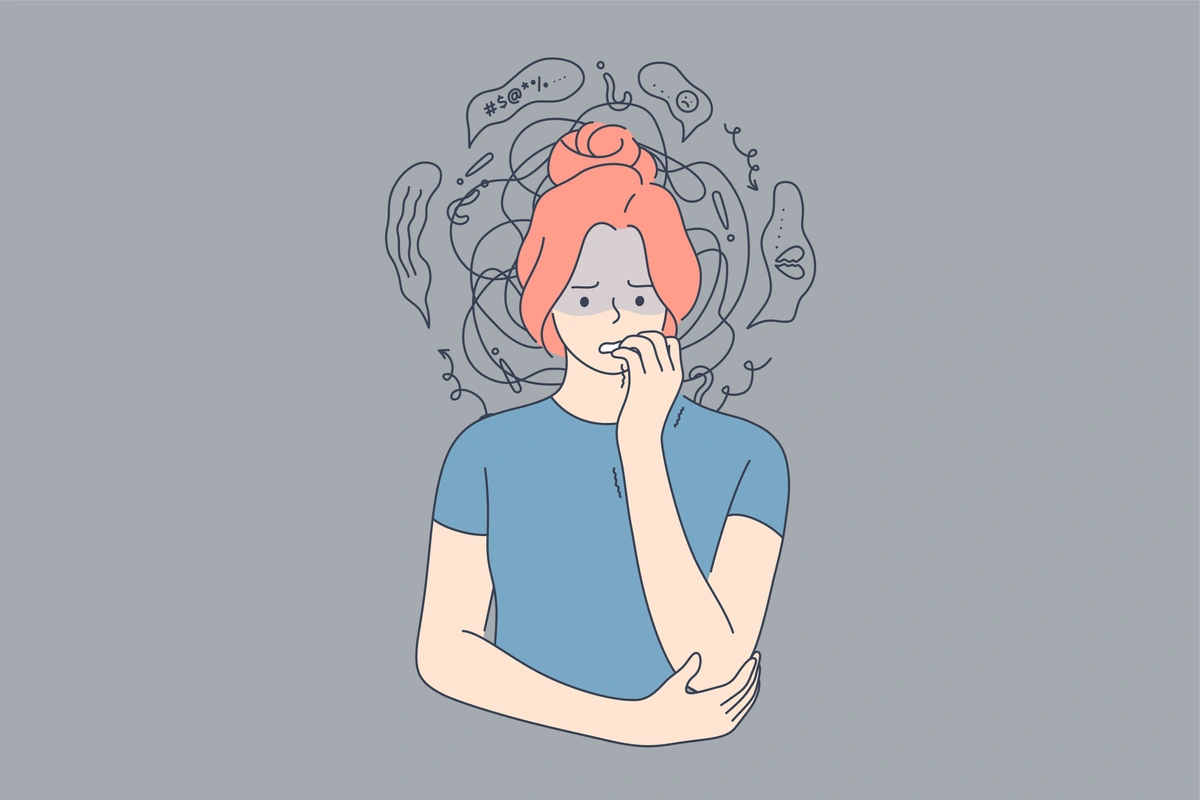Generalized Anxiety Disorder

Generalized Anxiety Disorder
Anxiety disorders are the most commonly diagnosed mental health condition in America. According to the National Institute of Mental Health (NIMH), about 6 percent of adults suffer from Generalized Anxiety Disorder (GAD) at some time in their lives.
Anxiety disorder symptoms may be mild, moderate, or serious. Researchers have found that about a third of people with GAD have serious levels of impairment. Individuals with GAD can be quite skilled at masking their symptoms, making it difficult for others to know whether someone suffers from this condition.
What it looks like
Some signs and symptoms of GAD include the following:
- Difficulty controlling worrying and overall nervousness
- Feeling irritable
- Feeling restless and struggling with concentration
- Difficulty with falling asleep or frequent awakenings
- Feeling tired all the time without exercising
- Experiencing muscle aches, headaches, stomach aches and other pains but with no underlying medical problems
- Perspiring a lot or feeling out of breath
- Being easily startled
Generalized anxiety is a chronic state of excessive worry that impedes a person in their daily life. It affects them at home and at work, and may also impact their overall health. Many people who do not have generalized anxiety worry about problems they face in their daily lives and the lives of their family. They may feel anxiety about money problems, relationship issues, health concerns, and other problems of daily living. It’s quite common and normal to worry from time to time when life gets stressful. But, when the worry becomes an all-consuming sense of dread that depletes joy and occupies the majority of one's thoughts, then this constitutes generalized anxiety disorder.
Anxiety can distort thoughts. For example, if something positive happens to a person with GAD, they might misinterpret it as a sign that something terrible will happen to counterbalance “good luck.” Anxiety causes people to fixate so much on potential problems that they often struggle in their everyday lives, neglecting themselves and their personal interests. Symptoms of GAD can be seen as early as adolescence or young adulthood, and if untreated, they can persist over time.
Having GAD is nobody's fault
Many people with GAD may have blamed themselves for years for not being able to control their worry. Or, they may have wondered how everyone else seems so assured and relaxed. But, anxiety is no one’s fault, and is extremely difficult to control without therapy or medications. Blaming oneself for generalized anxiety is like blaming oneself for being too tall or having freckles.
According to researchers, the national level of GAD in the United States ballooned to as high as 18% (from a pre-COVID level of about 1.8%) during the initial period of the COVID epidemic in 2020. Many individuals reported experiencing very high levels of stress, loneliness, and fatigue during the pandemic.
Untreated GAD
According to the Anxiety & Depression Society of America, less than half of the people with GAD (43%) in the United States receive treatment for their disorder.
It is very important to treat generalized anxiety. Anxiety inherently is not dangerous, as it is a helpful emotion to perceive danger and to be safe. However, anxiety in abundance and especially when untreated, can cause impairment in daily living, in relationships, professionally, and can significantly affect one's happiness and overall health.
Outlook
Living with generalized anxiety can make life unnecessarily difficult and unhappy. However, most people who are properly diagnosed and treated feel dramatic improvement in their daily lives. They have higher levels of contentment, an enhanced sense of wellbeing, and are better able to manage stress and anxiety.
In good company
Many prominent people reportedly struggle with anxiety, such as actress Emma Stone, media personality Kim Kardashian, news host Carson Daily, and actor Ryan Reynolds. Individuals with GAD are definitely not alone in feeling this way.
The current thinking on what causes GAD
GAD may have a genetic foundation, as psychologists see that it “runs in families.” However, the issue is complicated: An individual may have a family history of anxiety, but never experience it themselves. Most psychologists believe that anxiety conditions result from a combination of one's genetics and environment. Often beginning in childhood, anxiety can be triggered by an early stressful life event. As commonly, the problem seems to develop out of nowhere.
Whatever the reason for generalized anxiety, it is likely that established treatment practices will help.